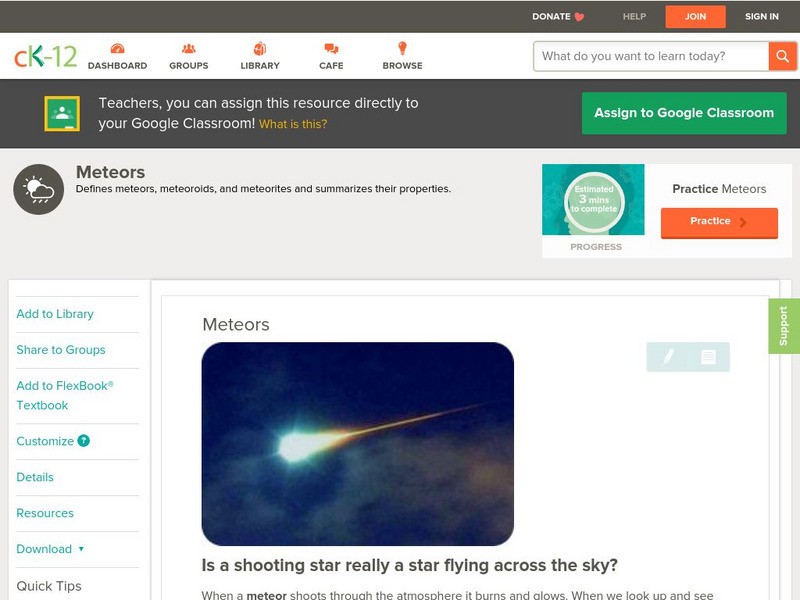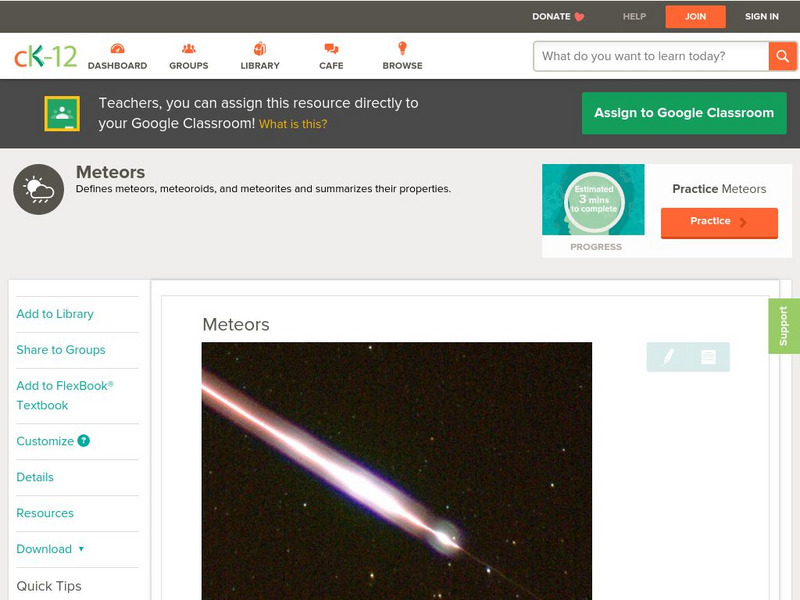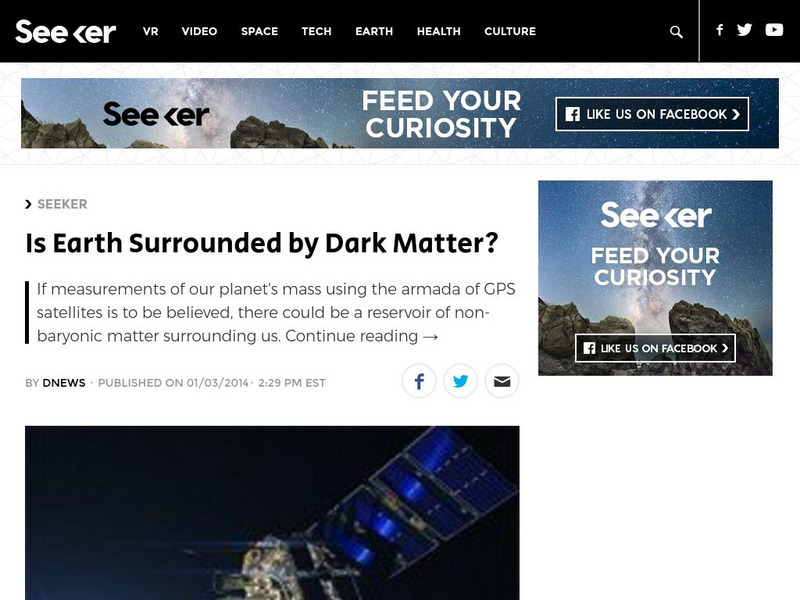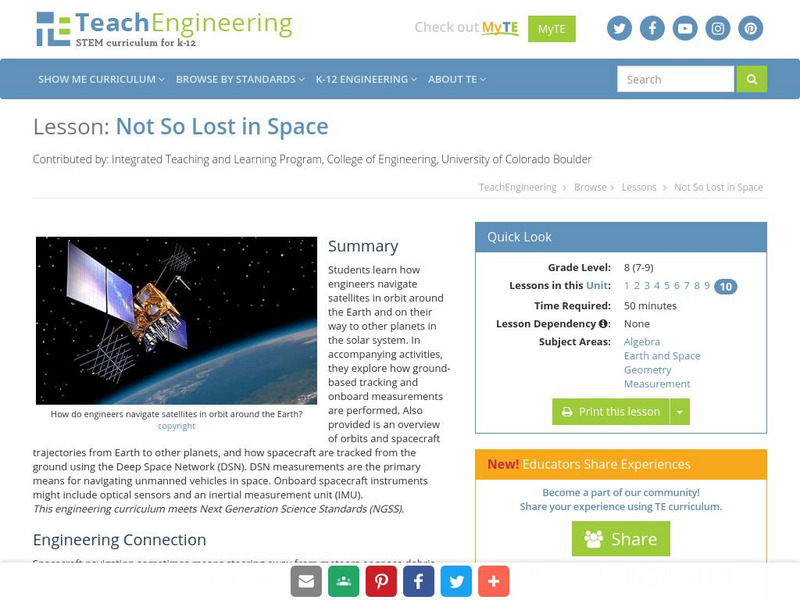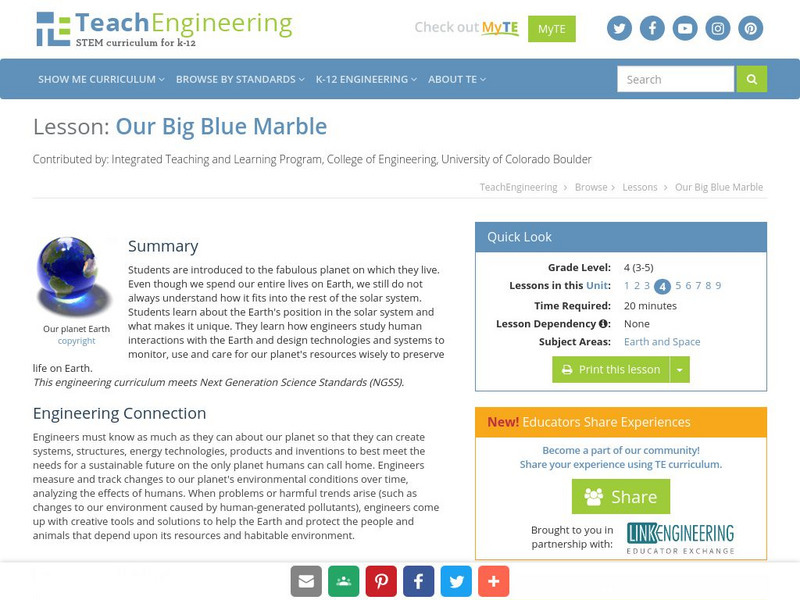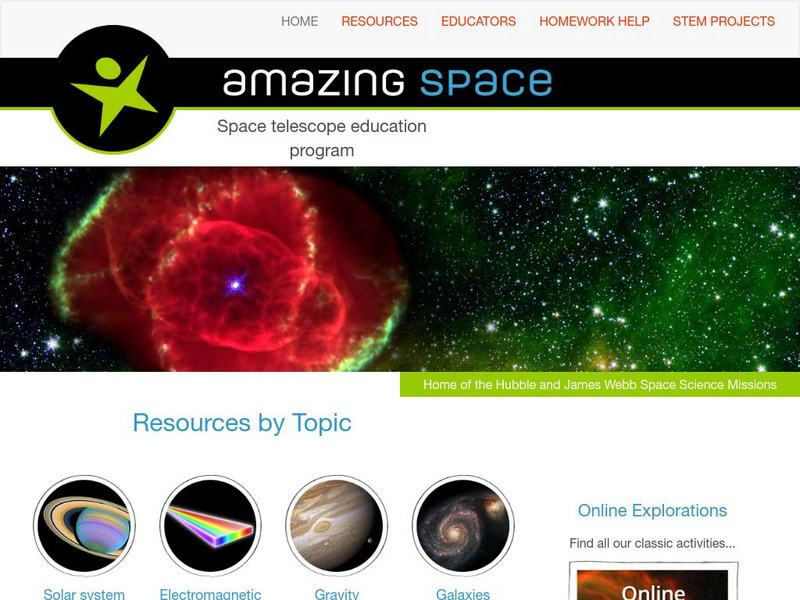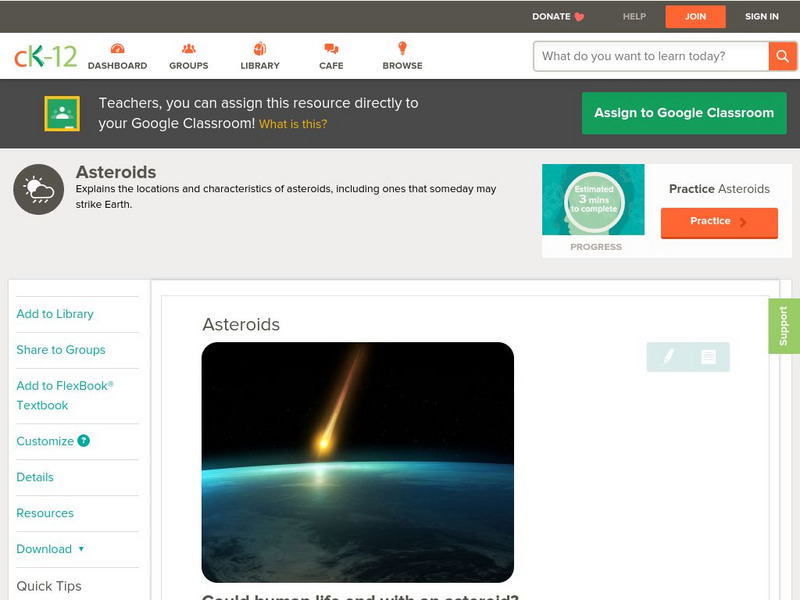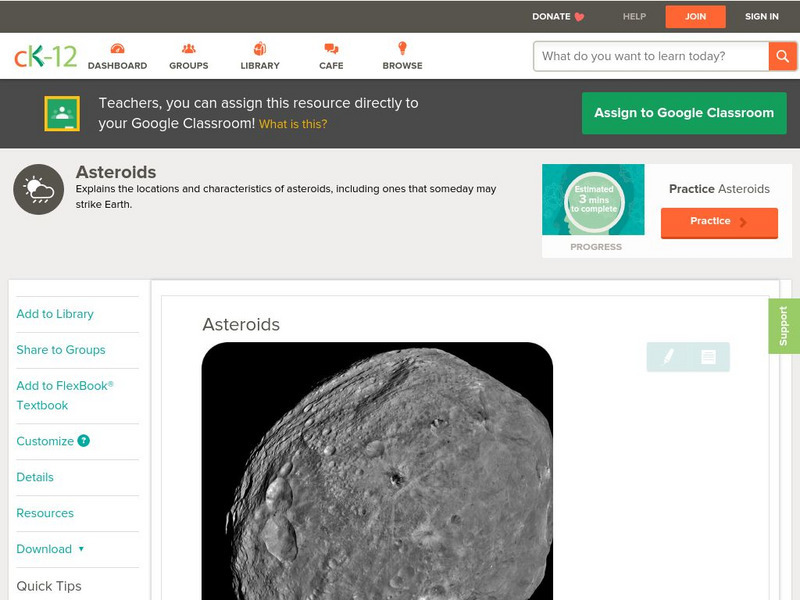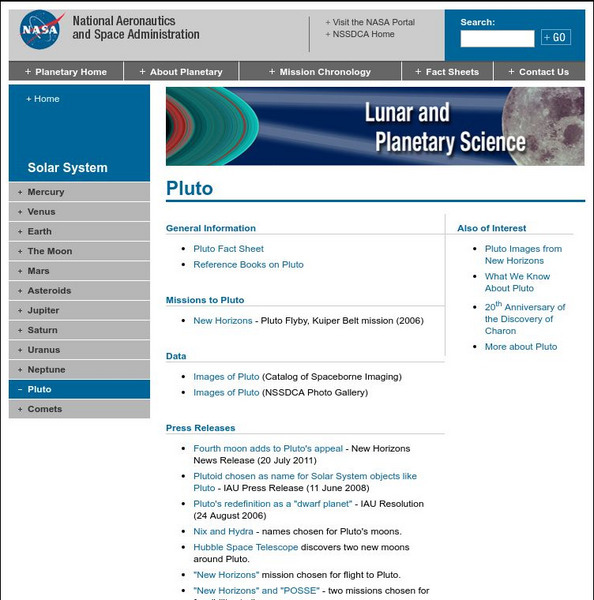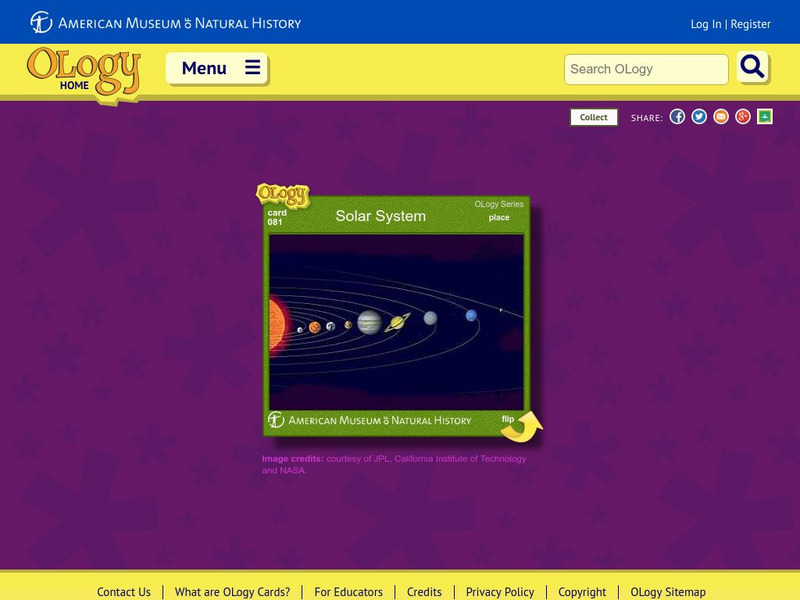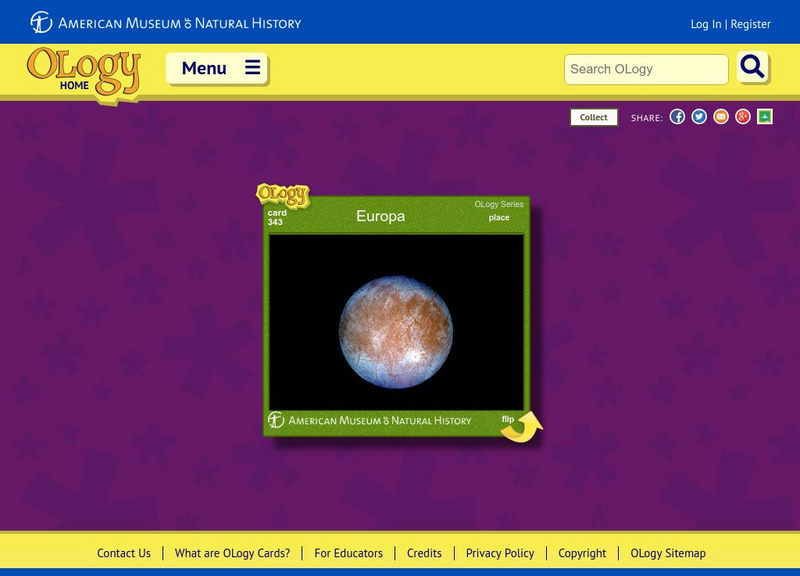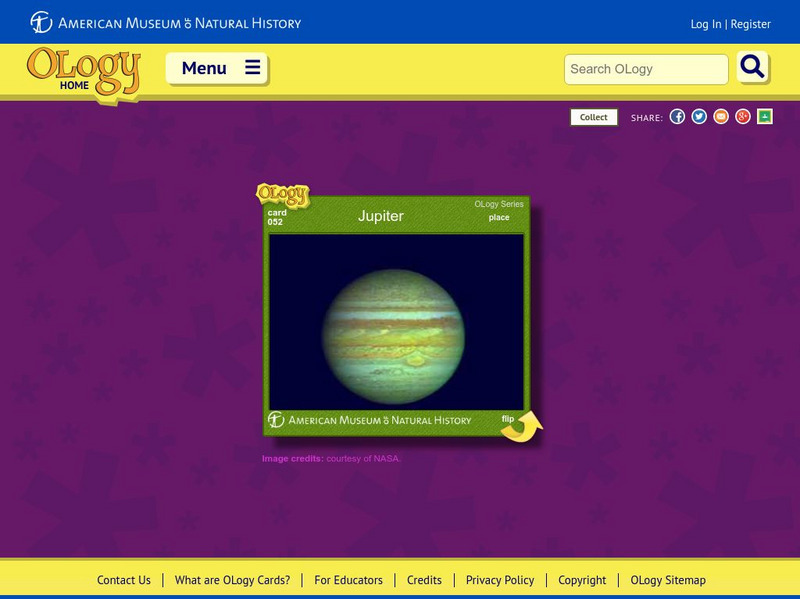CK-12 Foundation
Ck 12: Earth Science: Meteors
[Free Registration/Login may be required to access all resource tools.] Describes the properties of meteors.
CK-12 Foundation
Ck 12: Earth Science: Meteors
[Free Registration/Login may be required to access all resource tools.] Describes the properties of meteors.
CK-12 Foundation
Ck 12: Earth Science: Planets of the Solar System
[Free Registration/Login may be required to access all resource tools.] Examines the eight planets of our solar system, their orbits, and rotation.
Seeker
Seeker: Week of 1 6 14: Is Earth Surrounded by Dark Matter?
Article reports on a presentation that suggests that the Earth is surrounded by dark matter.
NASA
Nasa: Planets in a Bottle
In this simple lesson, students grow yeast to learn how the climates on each of the nine planets would affect life.
Famous Scientists
Famous Scientists: Aristarchus
Find out about the ancient Greek astronomer and mathematician who presented the first known model that placed the Sun at the center of the known universe with the Earth revolving around it.
NASA
Nasa: Imagine the Universe: The History of Gamma Ray Astronomy
This NASA article discusses the history of gamma-ray astronomy. Related resources.
TeachEngineering
Teach Engineering: Not So Lost in Space
Students learn how engineers navigate satellites in orbit around the Earth and on their way to other planets in the solar system. In accompanying activities, they explore how ground-based tracking and onboard measurements are performed....
TeachEngineering
Teach Engineering: Destination Outer Space
Students acquire a basic understanding of the science and engineering of space travel as well as a brief history of space exploration. They learn about the scientists and engineers who made space travel possible and briefly examine some...
TeachEngineering
Teach Engineering: Our Big Blue Marble
Learners are introduced to the fabulous planet on which they live. Even though we spend our entire lives on Earth, we still do not always understand how it fits into the rest of the solar system. Students learn about the Earth's position...
Space Telescope Science Institute
Space Telescope Science Institute: Amazing Space
Amazing Space promotes the "science and majestic beauty of the universe for use in the classroom." Here you can find learning activities, lesson plans, teaching guides, and helpful tips for students eager to learn about space and space...
CK-12 Foundation
Ck 12: Earth Science: Asteroids
[Free Registration/Login may be required to access all resource tools.] Describes characteristics of asteroids.
CK-12 Foundation
Ck 12: Earth Science: Asteroids
[Free Registration/Login may be required to access all resource tools.] Describes characteristics of asteroids.
CK-12 Foundation
Ck 12: Earth Science: Exoplanets
[Free Registration/Login may be required to access all resource tools.] Describes the features of exoplanets.
CK-12 Foundation
Ck 12: Earth Science: Exoplanets
[Free Registration/Login may be required to access all resource tools.] Describes the features of exoplanets.
CK-12 Foundation
Ck 12: Earth Science: Jupiter
[Free Registration/Login may be required to access all resource tools.] Recognize the features of the planet Jupiter, including the Great Red Spot.
CK-12 Foundation
Ck 12: Earth Science: Jupiter
[Free Registration/Login may be required to access all resource tools.] Recognize the features of the planet Jupiter, including the Great Red Spot.
NASA
Nasa Space Science Data Archive: Pluto
This site, which is provided by the National Space Science Data Center of NASA, is a site with detailed information about Pluto, including planned missions to explore the planet in greater detail.
NASA
Nasa: Space Place: Messenger: Planet Mass Comparison
Compare the masses of planets in this interactive animation. Simply pile a number of Earths on one side of the scale, to balance with the mass of one Jupiter. Then try this with all the planets.
American Museum of Natural History
American Museum of Natural History: Solar System O Logy Card
Here's an Ology Card about the Solar System, offering a small image, a definition, and information on how "far out" our Solar System is. Includes questions to quiz your knowledge and quick facts about the Solar System's size, rotation...
American Museum of Natural History
American Museum of Natural History: Venus O Logy Card
Flip this interactive card to start learning about the planet Venus. Answer multiple-choice and fact-or-fiction questions and review some fast facts about Venus.
American Museum of Natural History
American Museum of Natural History: Europa O Logy Card
Flip this interactive card to start learning about Europa, one of Jupiter's largest moons. Answer multiple-choice and fact-or-fiction questions and review some fast facts about Europa.
American Museum of Natural History
American Museum of Natural History: Craters O Logy Card
Flip this interactive card to start learning about craters. Answer multiple-choice and fact-or-fiction questions and review some fast facts.
American Museum of Natural History
American Museum of Natural History: Jupiter O Logy Card
Flip this interactive card to start learning about Jupiter, the largest planet in our solar system. Answer multiple-choice and fact-or-fiction questions and review some fast facts about Jupiter.


